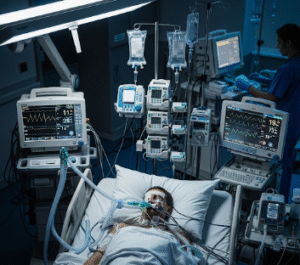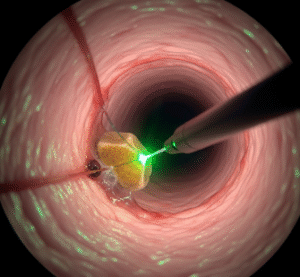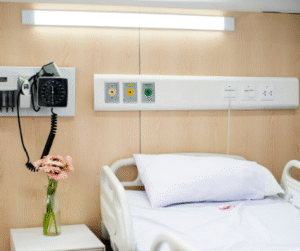Overview
Multiple Endocrine Neoplasia (MEN) is a rare hereditary disorder that causes tumors in multiple endocrine glands, potentially leading to overproduction of hormones. In Korea, awareness and early diagnosis of MEN have improved thanks to advanced genetic testing and specialized endocrinology centers. Leading hospitals such as Seoul National University Hospital, Asan Medical Center, and Samsung Medical Center provide comprehensive care, including early screening, surgical management, and lifelong follow-up to manage the disease effectively.
What is Multiple Endocrine Neoplasia?
Multiple Endocrine Neoplasia is a genetic syndrome characterized by the development of tumors in two or more endocrine glands. There are different types:
- MEN Type 1 (MEN1) – affects the parathyroid, pancreas, and pituitary glands.
- MEN Type 2 (MEN2) – affects the thyroid (medullary thyroid cancer), adrenal glands (pheochromocytoma), and sometimes parathyroid glands.
MEN is caused by mutations in specific genes (MEN1 gene for MEN1 and RET gene for MEN2) and follows an autosomal dominant inheritance pattern, meaning a single copy of the mutated gene can cause the syndrome.
Symptoms
Symptoms vary depending on which glands are affected:
- Parathyroid tumors: kidney stones, bone pain, fatigue, high calcium levels
- Pancreatic tumors: abdominal pain, hypoglycemia, gastrointestinal bleeding
- Pituitary tumors: hormonal imbalances, vision changes, headaches
- Thyroid tumors (MEN2): neck swelling, thyroid nodules
- Adrenal tumors (pheochromocytoma): high blood pressure, palpitations, sweating
Causes
- Genetic mutations in MEN1 or RET genes
- Autosomal dominant inheritance, meaning children of affected parents have a 50% chance of inheriting the condition
- Spontaneous mutations can also occur in rare cases
Risk Factors
- Family history of MEN
- Known carriers of MEN1 or RET gene mutations
- Certain populations with higher reported prevalence of MEN2 mutations
Complications
- Hormonal imbalances leading to organ dysfunction
- Increased risk of malignant tumors, especially medullary thyroid carcinoma and pancreatic neuroendocrine tumors
- Cardiovascular complications from adrenal tumors (pheochromocytoma)
- Kidney stones, osteoporosis, or gastrointestinal issues from hormone overproduction
- Lifelong monitoring is often required due to tumor recurrence or new tumor development
Prevention
- Genetic counseling for families with a history of MEN
- Early genetic testing to identify carriers and initiate monitoring
- Regular screening of endocrine glands for tumors
- Prophylactic surgeries in high-risk cases, such as thyroid removal in MEN2 mutation carriers
Treatment Options in Korea
Korea offers a combination of surgical, medical, and supportive care for MEN patients through multidisciplinary teams.
- Diagnosis
- Genetic testing for MEN1 and RET mutations
- Blood and urine tests to measure hormone levels
- Imaging studies (ultrasound, CT, MRI, PET scans) to detect tumors
- Medical Management
- Medications to control hormone overproduction
- Blood pressure management for pheochromocytoma
- Regular monitoring for early detection of new tumors
- Surgical & Advanced Treatments
- Parathyroidectomy for parathyroid tumors
- Resection of pancreatic or adrenal tumors
- Total thyroidectomy in high-risk MEN2 carriers
- Minimally invasive and robotic-assisted surgeries are available in Korea
- Specialized Hospitals in Korea
- Seoul National University Hospital – Advanced genetic testing and multidisciplinary MEN clinics
- Asan Medical Center – Endocrinology and endocrine surgery departments
- Samsung Medical Center – Comprehensive endocrine tumor management and robotic surgery
- Yonsei Severance Hospital – Lifelong follow-up programs and supportive care
- Long-Term Follow-Up
- Regular hormone monitoring
- Imaging for tumor recurrence or new tumor development
- Counseling and support for patients and families













